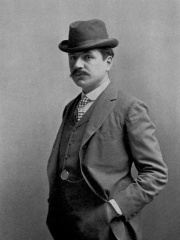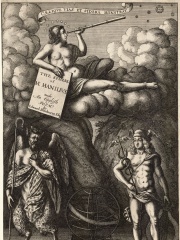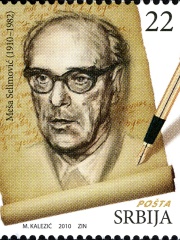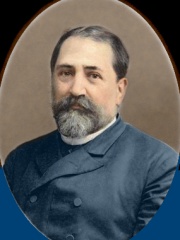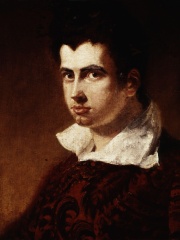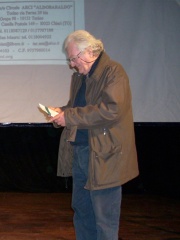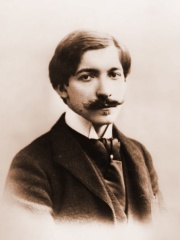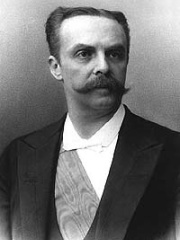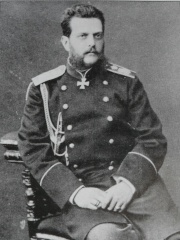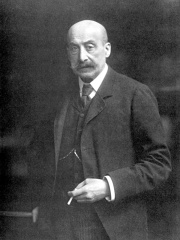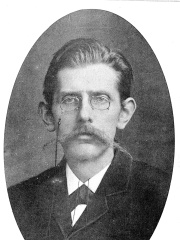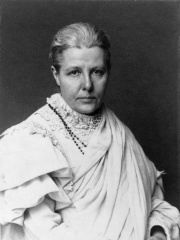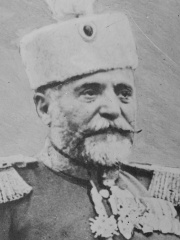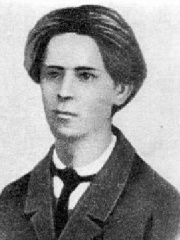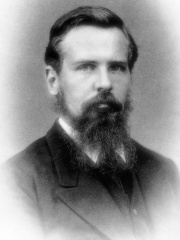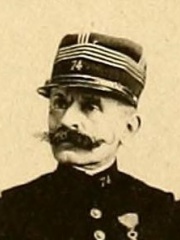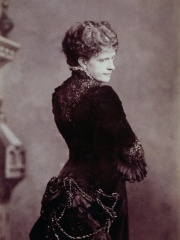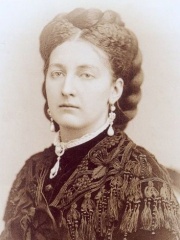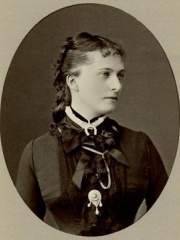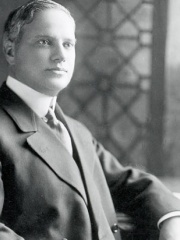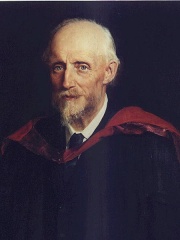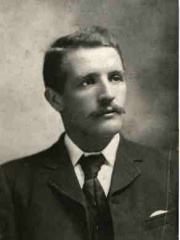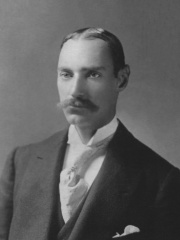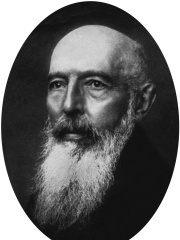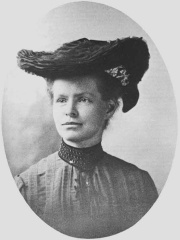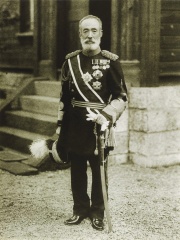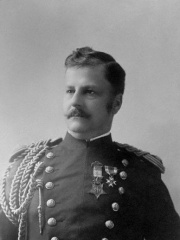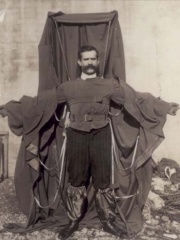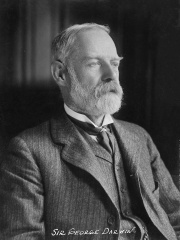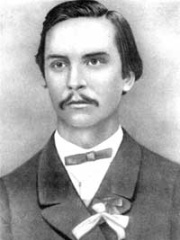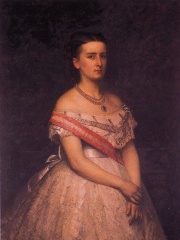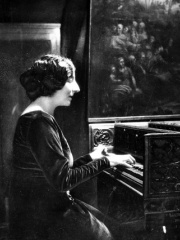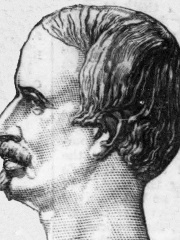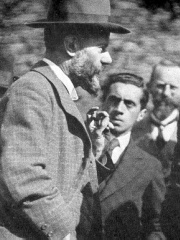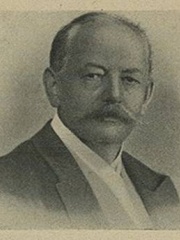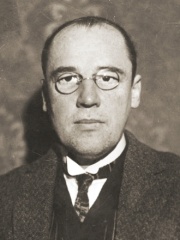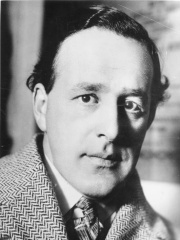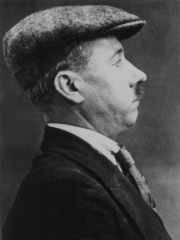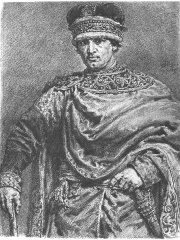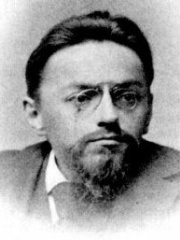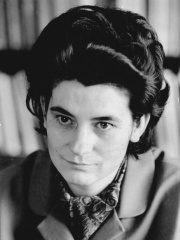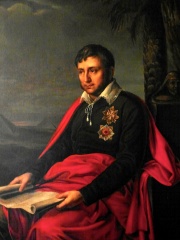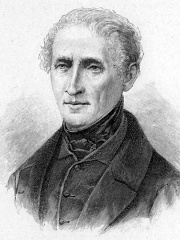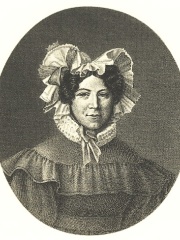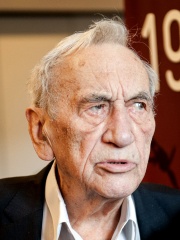WRITER
Bolesław Prus
1847 - 1912
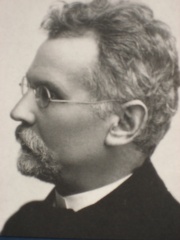
 Bolesław Prus
Bolesław Prus
Aleksander Głowacki (20 August 1847 – 19 May 1912), better known by his pen name Bolesław Prus (Polish: [bɔˈlεswaf ˈprus] ), was a Polish journalist, novelist, a leading figure in the history of Polish literature and philosophy, and a distinctive voice in world literature. Aged 15, Aleksander Głowacki joined the Polish 1863 Uprising against Imperial Russia. Shortly after his 16th birthday, he suffered severe battle injuries. Five months later, he was imprisoned. Read more on Wikipedia
His biography is available in 47 different languages on Wikipedia (up from 45 in 2024). Bolesław Prus is the 1,075th most popular writer (up from 1,157th in 2024), the 237th most popular biography from Poland (up from 245th in 2019) and the 19th most popular Polish Writer.
Memorability Metrics
Page views of Bolesław Prus by language
Among WRITERS
Among writers, Bolesław Prus ranks 1,075 out of 7,302. Before him are Paul Bourget, Marcus Manilius, Meša Selimović, Ilia Chavchavadze, Leigh Hunt, and Thomas Pynchon. After him are Michel Tournier, Tavo Burat, Bernard-Henri Lévy, Edith Wharton, Pierre Louÿs, and Ibn Sirin.
Most Popular Writers in Wikipedia
Go to all RankingsPaul Bourget
1852 - 1935
HPI: 67.69
Rank: 1,069
Marcus Manilius
50 BC - 50
HPI: 67.68
Rank: 1,070
Meša Selimović
1910 - 1982
HPI: 67.68
Rank: 1,071
Ilia Chavchavadze
1837 - 1907
HPI: 67.67
Rank: 1,072
Leigh Hunt
1784 - 1859
HPI: 67.67
Rank: 1,073
Thomas Pynchon
1937 - Present
HPI: 67.66
Rank: 1,074
Bolesław Prus
1847 - 1912
HPI: 67.65
Rank: 1,075
Michel Tournier
1924 - 2016
HPI: 67.64
Rank: 1,076
Tavo Burat
1932 - 2009
HPI: 67.64
Rank: 1,077
Bernard-Henri Lévy
1948 - Present
HPI: 67.63
Rank: 1,078
Edith Wharton
1862 - 1937
HPI: 67.63
Rank: 1,079
Pierre Louÿs
1870 - 1925
HPI: 67.63
Rank: 1,080
Ibn Sirin
653 - 729
HPI: 67.63
Rank: 1,081
Contemporaries
Among people born in 1847, Bolesław Prus ranks 18. Before him are Jean Casimir-Perier, Grand Duke Vladimir Alexandrovich of Russia, Max Liebermann, Jens Peter Jacobsen, Annie Besant, and Radomir Putnik. After him are Sergey Nechayev, Paul Langerhans, Ferdinand Walsin Esterhazy, Maria Pia of Savoy, Maria Vittoria dal Pozzo, and Catherine Dolgorukov. Among people deceased in 1912, Bolesław Prus ranks 27. Before him are Benjamin Guggenheim, Osborne Reynolds, William McMaster Murdoch, John Jacob Astor IV, Gerhard Armauer Hansen, and Nettie Stevens. After him are Nogi Maresuke, Arthur MacArthur Jr., Franz Reichelt, George Darwin, Mykola Lysenko, and Princess Marie of Hohenzollern-Sigmaringen.
Others Born in 1847
Go to all RankingsJean Casimir-Perier
POLITICIAN
1847 - 1907
HPI: 69.85
Rank: 12
Grand Duke Vladimir Alexandrovich of Russia
POLITICIAN
1847 - 1909
HPI: 69.25
Rank: 13
Max Liebermann
PAINTER
1847 - 1935
HPI: 69.02
Rank: 14
Jens Peter Jacobsen
WRITER
1847 - 1885
HPI: 69.00
Rank: 15
Annie Besant
SOCIAL ACTIVIST
1847 - 1933
HPI: 68.96
Rank: 16
Radomir Putnik
POLITICIAN
1847 - 1917
HPI: 68.52
Rank: 17
Bolesław Prus
WRITER
1847 - 1912
HPI: 67.65
Rank: 18
Sergey Nechayev
SOCIAL ACTIVIST
1847 - 1882
HPI: 67.52
Rank: 19
Paul Langerhans
POLITICIAN
1847 - 1888
HPI: 67.36
Rank: 20
Ferdinand Walsin Esterhazy
MILITARY PERSONNEL
1847 - 1923
HPI: 67.17
Rank: 21
Maria Pia of Savoy
POLITICIAN
1847 - 1911
HPI: 66.97
Rank: 22
Maria Vittoria dal Pozzo
NOBLEMAN
1847 - 1876
HPI: 66.72
Rank: 23
Catherine Dolgorukov
COMPANION
1847 - 1922
HPI: 66.03
Rank: 24
Others Deceased in 1912
Go to all RankingsBenjamin Guggenheim
BUSINESSPERSON
1865 - 1912
HPI: 69.50
Rank: 21
Osborne Reynolds
PHYSICIST
1842 - 1912
HPI: 69.26
Rank: 22
William McMaster Murdoch
WRITER
1873 - 1912
HPI: 69.20
Rank: 23
John Jacob Astor IV
WRITER
1864 - 1912
HPI: 68.59
Rank: 24
Gerhard Armauer Hansen
PHYSICIAN
1841 - 1912
HPI: 68.57
Rank: 25
Nettie Stevens
BIOLOGIST
1861 - 1912
HPI: 68.31
Rank: 26
Bolesław Prus
WRITER
1847 - 1912
HPI: 67.65
Rank: 27
Nogi Maresuke
MILITARY PERSONNEL
1849 - 1912
HPI: 67.28
Rank: 28
Arthur MacArthur Jr.
MILITARY PERSONNEL
1845 - 1912
HPI: 66.80
Rank: 29
Franz Reichelt
INVENTOR
1879 - 1912
HPI: 66.46
Rank: 30
George Darwin
ASTRONOMER
1845 - 1912
HPI: 66.15
Rank: 31
Mykola Lysenko
COMPOSER
1842 - 1912
HPI: 65.94
Rank: 32
Princess Marie of Hohenzollern-Sigmaringen
NOBLEMAN
1845 - 1912
HPI: 65.81
Rank: 33
In Poland
Among people born in Poland, Bolesław Prus ranks 237 out of 1,694. Before him are Wanda Landowska (1879), Robert Luther (1822), Ernst Toller (1893), Adolf Engler (1844), Udo Lattek (1935), and Wacław Sierpiński (1882). After him are Emil Ludwig (1881), B. Traven (1882), Władysław II the Exile (1105), Zbigniew Boniek (1956), Charles Proteus Steinmetz (1865), and Arnold Zweig (1887).
Others born in Poland
Go to all RankingsWanda Landowska
MUSICIAN
1879 - 1959
HPI: 67.85
Rank: 231
Robert Luther
ASTRONOMER
1822 - 1900
HPI: 67.82
Rank: 232
Ernst Toller
WRITER
1893 - 1939
HPI: 67.77
Rank: 233
Adolf Engler
BIOLOGIST
1844 - 1930
HPI: 67.76
Rank: 234
Udo Lattek
SOCCER PLAYER
1935 - 2015
HPI: 67.71
Rank: 235
Wacław Sierpiński
MATHEMATICIAN
1882 - 1969
HPI: 67.70
Rank: 236
Bolesław Prus
WRITER
1847 - 1912
HPI: 67.65
Rank: 237
Emil Ludwig
WRITER
1881 - 1948
HPI: 67.57
Rank: 238
B. Traven
WRITER
1882 - 1969
HPI: 67.55
Rank: 239
Władysław II the Exile
POLITICIAN
1105 - 1159
HPI: 67.48
Rank: 240
Zbigniew Boniek
SOCCER PLAYER
1956 - Present
HPI: 67.47
Rank: 241
Charles Proteus Steinmetz
MATHEMATICIAN
1865 - 1923
HPI: 67.44
Rank: 242
Arnold Zweig
WRITER
1887 - 1968
HPI: 67.40
Rank: 243
Among WRITERS In Poland
Among writers born in Poland, Bolesław Prus ranks 19. Before him are Witold Gombrowicz (1904), Christa Wolf (1929), Jan Potocki (1761), Jerzy Kosiński (1933), Joseph Freiherr von Eichendorff (1788), and Ernst Toller (1893). After him are Emil Ludwig (1881), B. Traven (1882), Arnold Zweig (1887), Johanna Schopenhauer (1766), Tadeusz Mazowiecki (1927), and Jan Długosz (1415).
Witold Gombrowicz
1904 - 1969
HPI: 70.40
Rank: 13
Christa Wolf
1929 - 2011
HPI: 70.12
Rank: 14
Jan Potocki
1761 - 1815
HPI: 69.63
Rank: 15
Jerzy Kosiński
1933 - 1991
HPI: 68.94
Rank: 16
Joseph Freiherr von Eichendorff
1788 - 1857
HPI: 68.18
Rank: 17
Ernst Toller
1893 - 1939
HPI: 67.77
Rank: 18
Bolesław Prus
1847 - 1912
HPI: 67.65
Rank: 19
Emil Ludwig
1881 - 1948
HPI: 67.57
Rank: 20
B. Traven
1882 - 1969
HPI: 67.55
Rank: 21
Arnold Zweig
1887 - 1968
HPI: 67.40
Rank: 22
Johanna Schopenhauer
1766 - 1838
HPI: 67.28
Rank: 23
Tadeusz Mazowiecki
1927 - 2013
HPI: 67.15
Rank: 24
Jan Długosz
1415 - 1480
HPI: 66.90
Rank: 25
